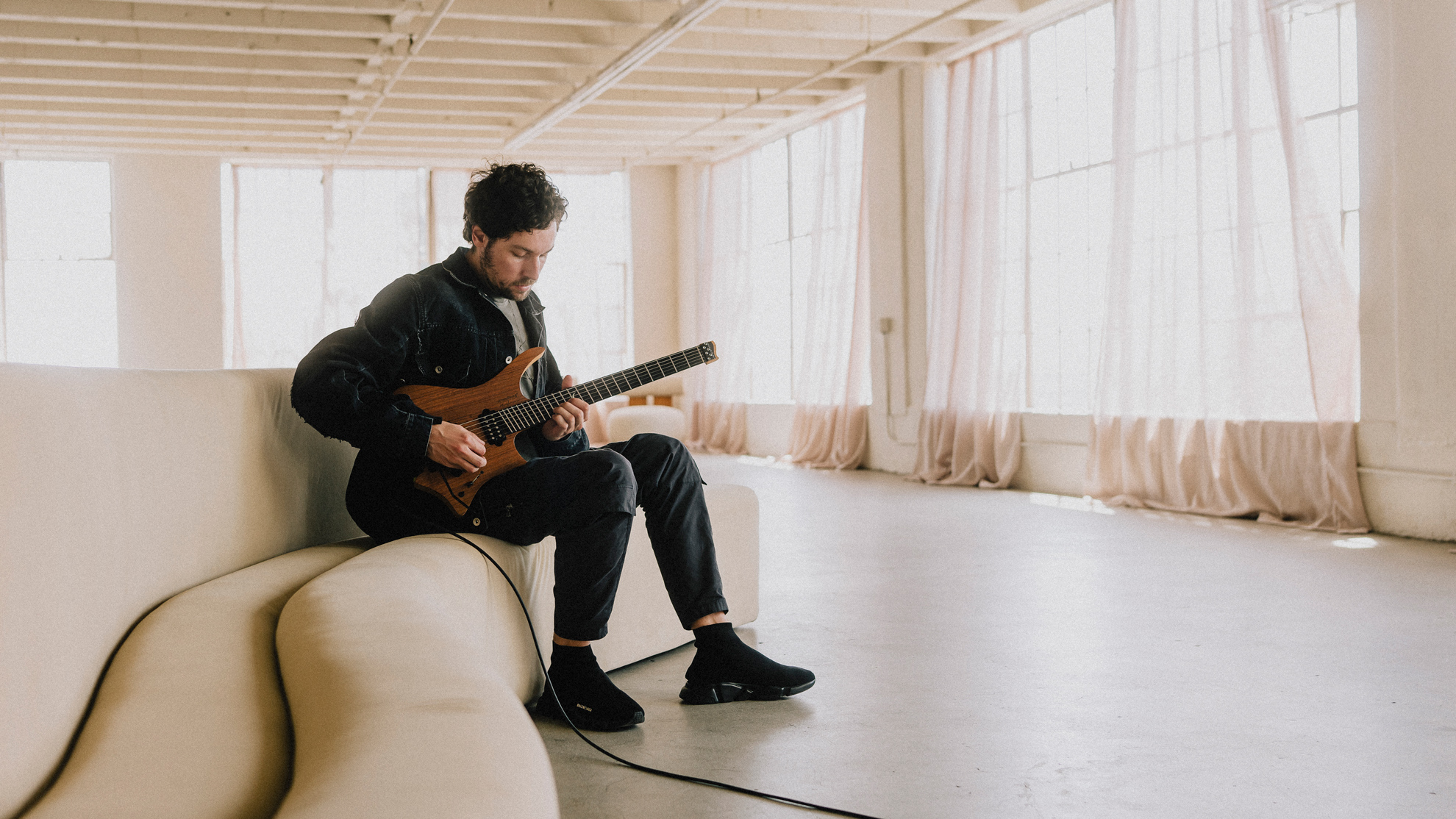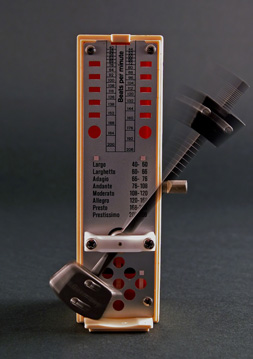 The most important thing to a musician is the music that you create. You spend years developing a distinctive sound and style before finally getting the opportunity to record your first album professionally. All the hard work you’ve put into creating a unique, original sound, however, may not be enough to create a successful record.
The most important thing to a musician is the music that you create. You spend years developing a distinctive sound and style before finally getting the opportunity to record your first album professionally. All the hard work you’ve put into creating a unique, original sound, however, may not be enough to create a successful record.
Producing a great album is an art form in itself, and it requires the assistance of an experienced professional producer—a producer can actually make or break your career.
The right collaboration can take you to creative places you never imagined, but the wrong one can be a nightmare whose implications are far-reaching. Understanding a few things about how to choose the right record producer can therefore be vital to your career!
Below are twenty important tips to consider when choosing your record producer. Logically, not every topic can apply to both “signed” and “unsigned” recording artists, so pick the points that best suit your needs.
1) Get “Mutual Selection”
When a record company signs a new artist to a recording agreement, it will initially insist on having the final say in choosing an experienced record producer. After all, the record company wants to ensure that they’re getting the best possible product for its investment, which can sometimes run into the hundreds of thousands of dollars.
Attorney Jeff Cohen of Millen, White, Zelano, and Branigan, advises, “Since it makes no sense to have you locked up in the studio with a producer you’re unhappy with, most new bands can usually have their attorney negotiate that the selection of the record producer be mutual.”
2) Interpret Your Needs
Before even thinking about looking for the right producer, be crystal clear as to what you’re expecting to get out of the relationship. Do you have a well-defined vision of what you want your album to sound like—or are you going to rely completely on your producer’s thoughts and ideas? Are you a proficient vocalist and/or musician—or are you going to need a great deal of assistance getting the right performances on tape? Are you confident in your songwriting abilities—or are you going to need a producer to co-write and/or find outside songs?
“These factors,” comments producer David Brownstein of Fish Hook Productions, “are going to help you narrow down your choices for finding the best producer for your needs. Every producer has their unique gifts and specialties. If you haven’t given the above questions some thought, now’s a good time to start.”
3) Make A Wish List
Once you understand what you’re looking for in a producer, begin making a wish list of at least five people with whom you’d like to work. This especially proves useful in the likely case that your first-choice producer is unavailable, too expensive, or simply un-interested in working with you. If you’re an unsigned artist, your choices are obviously going to be limited to local producers and word-of-mouth recommendations.
Start out by asking some of the best independent artists in your area where their albums were recorded, and then listen to the production of these recordings to see what you think for yourself.
“If you’re a signed recording artist, begin your search by reading the liner notes on your favorite CDs or top 100 Billboard albums, and then add the producers’ names to your list,” suggests producer/musician Jay Gordon of Orgy. “Of course, you’ll also have the benefit of speaking with your A&R person who will have some very definite ideas about who should produce your album.”
4) Get In Contact
Resources such as The Musician’s Atlas and The Indie Bible provide contact numbers and addresses for hundreds of producers nation-wide which are extremely helpful to unsigned artists.
Dave Darling, producer for Brian Setzer and Meredith Brooks suggests you contact one of the few producer/manager firms such as Terry Lippman Management or Steve Moir in Los Angeles. Signed recording artists can usually rely on their A & R persons to make first contact with their desired producers. The label will send out demo recordings, lyric sheets and biographical information. If the producer expresses an interest, the label will even invite him or her to one of your live performances.
5) Record A Demo
Demos are important, but the quality may not be as important as you think. Producer Tom Weir of Studio City Sound says, “Don’t worry about the quality of the demos you send to producers if you’re an unsigned artist. As long as you have decent songs and the money to compensate him or her for costs and services, your demos won’t be overly scrutinized.”
As for signed recording artists; they usually send the same demos that got them a label deal; which are typically good quality. Nevertheless, producers aren’t just enticed by demo quality, it’s the buzz about the band in the industry, the support the record company appears to be giving the group and the songs the band writes.
Producer Jay Gordon adds, “The artist’s live performance is crucial. Does the vocalist strain to reach certain notes? Is she singing in the key that best for her voice. It’s all these factors combined.”
6) Spend Time
Once a producer has expressed an interest in working with you, it is extremely important to meet with him or her to review songs and to get a vibe for whether or not you can successfully work together.
Mikal Reid, producer for Ben Harper says, “It’s important that the artist gets a feeling of trust with a producer before ever choosing to work with him or her. Take the time to get to know your producer first so that there won’t be any surprises or conflicting situations in the studio later.”
7) Prepare Questions
When meeting with the producer, get a feel for whether or not he or she truly ”gets” your vision by preparing a list of questions. Nard Berings of Freshbeat Productions in Venice, CA suggests, “Ask him or her what type of record he imagines you making? Will it be a slick, well-produced commercial-sounding album with a lot of sequencers and samplings, or raw and in-your-face? Does the producer imagine your band recording together in one room to achieve a more “live” sounding record, or will the tracks be layered one musician at a time while using a click track?”
Indie artist a girl named jaen concludes, “If there are too many opposing opinions regarding how your album should be recorded, you’ll know right then that he or she may not be right for you. The last thing you want to do is to have the recording process turn sour midway through a project!”
8) Choose “Right” Before “Might”
Don’t just pick a producer based entirely on what he’s done, but rather on what he can do for you. Arif Mardin, who’s produced numerous artists including Aretha Franklin, the Bee Gees, Ani Chaka Chan, and Norah Jones, continues, “Surely, a producer with platinum records on his walls proves he has talent, but you don’t want to sound like his other hit artists; you want your record to be unique to you. That said, no matter how well-known a producer may be, never be intimidated to ask questions and voice your opinion when first meeting with him. Always remember that it’s your record you’re talking about, not the producer’s record.”
9) Check-out The Studio
Consider the vibe and technical aspects of the studio your producer suggests using by doing a walk-through. Arif Mardin stresses, “The studio is where the artist is going to live. The comfort level of the lounge, whether there are televisions, whether there’s a coffee maker, etcetera, are all important factors to making a good record. However, the artist must be willing to make compromises in these areas based on whether the studio sounds great, has great equipment and is reasonably priced.”
Producer Tom Weir adds these technical considerations: the size of room, the musical instruments available (Hammond B3, vintage drum kits), the recording gear (analog versus digital), the processing gear (i.e., the limiters and compressors which effect the sound and texture), and the collection of microphones. Lastly, make sure there’s a reliable source for which to back-up your digital recordings or otherwise they may be lost. No matter how good the studio may be, all systems eventually crash.”
10) Know Expectations
It’s not only important to discuss the things you expect to get out of your producer, but also what your producer expects to get out of you. Producer Dave Darling says one of the major expectations he has for his artists once they make a commitment to working with him is that they maintain the highest level of trust. “I like to push my artists to reach new creative heights and to get recorded performances they never thought possible. It’s hard work but it has to stay fun at all times. A positive working attitude is a must.”
Arif Mardin adds, “Artists must always be on time, make sure that their musical gear is well maintained, and, if they choose to partake in certain substances, to make sure that it’s not going to diminish their musical capabilities—or otherwise I’m out of there!”
11) Establish The Fee
The producer’s compensation varies depending on your career status and the producer’s expertise. If you’re an unsigned artist working with a local producer, the fees may consist of an hourly studio charge plus an additional charge for production.
The exact rates you can expect to pay at this level of your career are actually difficult to nail down, but studios can cost anywhere from $20 an hour into the hundreds. The producer’s fee can range from $50 into the hundreds per track. If you’re willing to work off-peak studio hours from 12:00 AM to 8:00 AM, or if you have a flexible schedule and are willing to work sporadically (i.e., whenever the producer is free from working with other clientele and can fit you into his or her schedule), you may be able to negotiate a lower fee.
Producer Tom Weir agrees that studio and production costs are an open market. “You simply have to do your research and make calls to get the best possible product to fit your economic means.”
12) Understand Recording Funds
Most new artists’ recording contracts are structured as “recording funds.” This means that out of the advances you negotiate in your recording agreement, all recording costs must be considered including the producer’s fee. The fees typically paid to a mid-level record producer can be as much as $50,000 for recording a full-length album, and up to $8,000 for a single master. (Superstar producers can get much more.)
Thus, if you receive a recording fund of $300,000, almost all of this money is allocated to your recording budget with anything left over serving as your artist advance. (There goes that new car you were going to buy once you got signed!) And if that wasn’t shocking enough, out of that $300,000 fund, 100 percent of it must be paid back from future record sales before you ever make one dime in royalties. Approximately 97 percent of all bands never recoup expenses.
13) Pay A Record Royalty?
Unsigned artists are typically not asked to pay a record royalty for sales—unless the producer is working dirt-cheap or for free in return for a piece of the future pie. Signed recording artists, however, will almost always be responsible for assigning a record royalty to the producer.
Most recording deals are “all-in.” This means that out of the royalty rate you negotiate with your record company, the producer’s royalty must be considered. Mid-level producers can receive up to 4 percent. Thus, if your label offers you a royalty rate of 14 percent, and the desired producer for a project requires a royalty of 4 percent, you’re now left with a “net royalty rate” of 10 percent. So before writing home to your friends and family about the whopping 14 point royalty you have, remember that you must always consider the producer’s share first.
14) Sign A Production Deal?
The record producer may also be part of an actual production company. In other words, the production company will sign and develop you and record your demo, and then enter into a recording contract with a major record company on your behalf.
The record company then pays the production company a royalty for sales of the album, and the production company in turn pays you around 50 percent of the money it receives. Entertainment attorney Stan Findelle warns, “The so-called production deal scenario, as loosely described above, is one of the most potentially dangerous to a young artist’s career. Here is the situation where your recording rights are sold for a pittance to a scoundrel with a label in his garage. The so-called producer can then wholesale you to a major label and keep most of the profit. Always make sure to talk to an attorney before signing anything.”
15) Give-Up Publishing?
Whether or not your producer is entitled to publishing rights really depends on the capacity in which he or she is involved in the songwriting process. When Alanis Morrisette joined forces with producer Glen Ballard, the team co-wrote songs that not only helped land Morrisette a major recording deal, but an album called Jagged Little Pill which sold over 30 million copies worldwide. In this instance the producer clearly owns a share.
But other instances may not be so clear, says Arif Mardin. “All producers will make modifications to the arrangements of your songs by adding or dropping four bars here and there, re-writing a pre-chorus, etc., but they’re hired and paid a handsome fee to do so and should not ask for publishing. Be leery of producers that are overly insistent on taking a piece of the publishing or getting involved in the songwriting process. Your publishing income can be the very money you live on long after your career is over.”
16) Inquire About Budgets
Most producers, especially when dealing with signed artists, handle a variety of administrative duties that include creating recording budgets.
As previously stated, the record company allocates a recording fund from which the budget must be established. The budget can include everything from the producer’s fee, tape and editing costs, engineers’ fees, mastering fees, lodging, equipment rentals, and cartage. Signed recording artists typically have the assistance of their A&R person to make sure budgets make sense, however unsigned artists must especially be sure that the budget is reasonable for their economic situation.
Also be sure that your prospective producer has the reputation for delivering a project within or close to its intended budget. You don’t want your record to end up costing twice as much as expected. Check your producer’s references no matter how famous he or she may be. As Madonna once said, “Time is money, and money is mine.”
17) Watch For Hidden Agendas
Though it’s the record producer’s role to oversee the recording budget, musicians may still have to be aware of how he or she handles recording expenses. As illustrated in Moses Avalon’s book “Confessions of a Record Producer,” the producer may be able to arrange deals with side musicians, tape vendors, and record studios, bill the expense at a higher cost and then receive a payment in the form of a kickback. In other words, besides earning a fee for his or her services, your record producer may be able to scam additional money from your recording budget under the table. Though no one likes to think this way, it’s been known to happen!
Producer Mikal Reid responds, “Keep in mind that though there are definitely scammers in the business, most producers are also musicians, and understand musicians—we’re in it first and foremost for the art of making a serious record.”
18) Ask About Administration
In addition to handling the recording budget, producers are also known to handle a variety of important administrative duties that include renting studios, hiring session musicians, sending out bills, seeing that samples are cleared, filing union contracts, filing compulsory or mechanical licenses (if you’re covering other artists’ songs) and seeking permission from other labels to use guest artists.
“These responsibilities must not be underestimated,” says Mark Goldstein, Senior Vice President of Business Affairs at Warner Bros. Records. “If samples aren’t cleared in a timely manner, for example, it could lead to serious problems and even copyright infringement charges down the line.”
Many producers even hire a “production coordinator” for assistance in these matters. These costs are factored into your recording budget. Be sure to speak with your producer beforehand to see what he or she has in mind.
19) Co-Produce It
You may be able to maintain more creative control and save money in producer’s fees by co-producing your record; it’s simply a negotiable matter if you’re an indie artist. Signed artists, however, will need to get co-production approval from their record label. The label will want to at least be sure that the producer is experienced in making creative decisions, and not just someone who will be functioning as an engineer. Remember, the label must protect its investment first and foremost, and make sure you deliver a record that has the potential to meet its sales expectations.
As for your saving money in production fees, established producers may be fine with sharing creative credit if you’re a capable enough producer, however they will typically not budge on their royalty or fee.
20) Get It In Writing
Always get the terms of all business agreements in writing. This will clarify the expectations of each party and provide protection in case there’s a dispute; people often forget what they promise.
Even with a producer you trust, a written agreement is an essential tool for establishing a professional relationship and its importance should never be underestimated. Many unsigned artists end up getting screwed from entering into contracts they didn’t understand.
Don’t use the excuse that you can’t afford an attorney. There are a number of great resources available on the market today that provide everything from comprehensive legal advice, actual contact forms and the phone numbers and addresses for some of the best attorneys in your area who may be willing to work on commission. Check out the Music Business Attorney, Legal & Business Affairs Registry (www.musicregistry.com), or Music Law (www.nolo.com). You’ll be glad you did!















